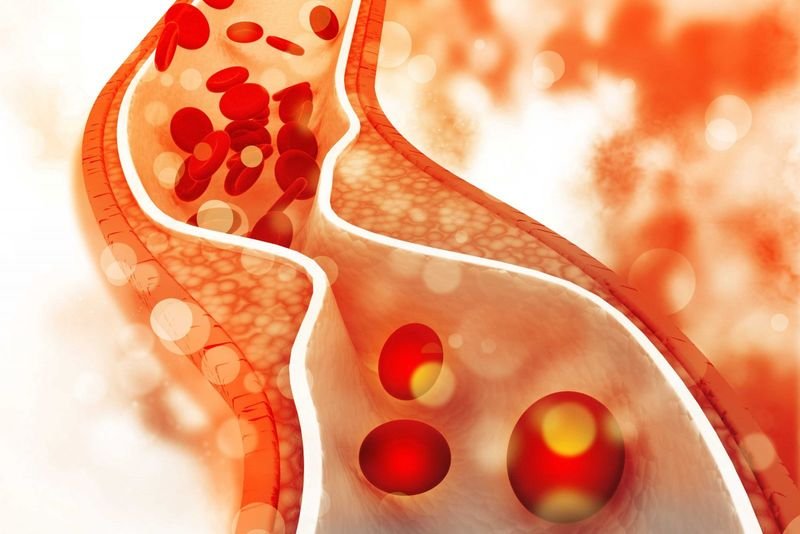Women at menopause have a higher risk of heart disease because this is the period when sex hormones that protect the heart have decreased and completely disappeared, making room for accumulation of too much cholesterol. To protect the heart from these hidden enemies, there are 10 principles doctors recommend us to apply.
1. Reduce food portions:
A varied and nutritious diet will reduce the risk of heart disease. We should eat more fruits, vegetables, grains, and fish than red meat, and change the menu with vegetables twice to three times a week and also do not forget to make the dishes more attractive with a variety of spices, vegetable oils instead of using fat or butter. In particular, do not eat too many salty foods.
2. Monitor cholesterol:
High in animal liver and some other foods such as butter, eggs, meat…, cholesterol is an indispensable fat for the body. However, if it is stored too much in the blood (more than 2g/l), it will be very dangerous. Cholesterol will stick to the walls of arteries, especially those near the heart, causing these vessels to narrow, blocking the flow of blood, and causing artery blockage. In order to avoid this phenomenon, we should drink less alcohol, reduce eating fatty foods, and limit weight gain and do not smoke.

3. Do not drink a lot of alcohol:
Drinking alcohol in small doses is beneficial to health, but drinking too much will increase the pressure in the arteries. This is the phenomenon of high blood pressure, which is known as the enemy of the heart. Alcohol has high calories which increase weight gain and create conditions for the occurrence of high blood pressure and diabetes.
4. Drink plenty of water:
Drink plenty of water even if you’re not thirsty as one of the tips to protect the heart. Also, you should not drink a lot of carbonated water but for filtered water, mineral water or lemon juice, or water with a cooling effect. Tea and coffee are two types of beverages that have a stimulating effect on the heart. Juices are also very good for your health, however, it’s advisable not to overuse them because they contain very high sugar which is not good for your health.
5. Check your blood pressure regularly:
Blood pressure is hereditary. If parents have high blood pressure, the children are more likely to have it, especially after the age of 50. However, some measures that can reduce this risk are avoiding overeating, especially with foods rich in nutrients, and avoiding salty foods.
6. Women should be careful with cigarettes and birth control pills:
Nicotine in cigarettes causes narrowing of the arteries, promotes the formation of clots in the arteries, and reduces the quality of blood. The carbon oxides will disturb the body’s absorption process and facilitate the storage of cholesterol. Smokers who are regularly exposed to secondhand smoke are six times more likely to develop heart disease than the general population. People with abnormal arteries before the age of 40 are usually smokers. For women who often use oral contraceptives, the risk of blood clots is also very high.
7. Weight control:
Being overweight is an important factor in high blood pressure and diabetes. To protect your health, it’s best to find ways to lose weight with exercise. Studies have shown that combining a weight-loss diet with physical activity is more effective than medication. Check your weight regularly and act when needed.
8. Eat a big breakfast:

Start each day with a hearty breakfast and end the day with a small dinner. For the purpose of making up for calories overnight, a big breakfast will not make you fat because the energy of breakfast will be used by the body throughout the day. A full breakfast must include proteins found in foods such as milk, yogurt, cheese, eggs… and the carbohydrates in bread, cereals, fruits, and lipids in butter, milk, and cheese.
9. Don’t let your belly get fat:
When the body gains weight, the excess weight is often put on your belly more than elsewhere. Sometimes there are people who are not too fat but have a big belly. The layers of visceral fat, which account for about 30% of body weight, when removed will reduce the risk of cardiovascular disease.
10. Regular exercise:
Cycling, swimming, walking… are gentle sports that require endurance and are very suitable for all ages. They help the body deliver more oxygen to the cells, make the heart work better, and improve the body’s flexibility. Exercising also helps to lose weight, and avoid high blood pressure and diabetes. Exercising half an hour a day or walking three times a week, 1 hour each time is enough to reverse all diseases.